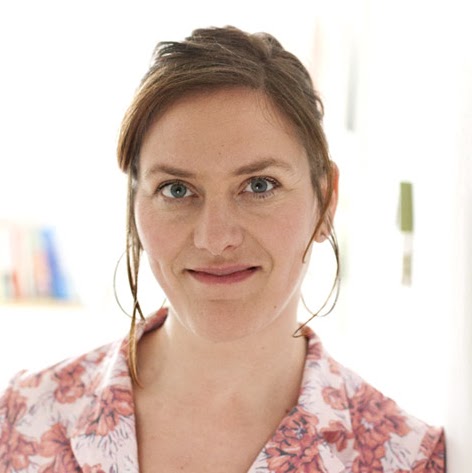In the Spotlight: Gabriele Kohlmeyer

Gaby and I have been working together for years over the phone. I get excited when I talk to Gaby about her writing practice because she actually does the work. It’s so gratifying to see how she is balancing the need to push herself with the need to trust herself.
Gaby used to write in German, and then translate her stories into English so I could read them. Eventually she began writing her drafts in English. I was concerned that she’d lose her startling metaphors when she made this change, but what happened instead was a subtle softening of language – the metaphors kept coming, but they felt more organic, more delightful, less “written.”
I love Gaby’s willingness to write about fear, confusion, loneliness, and sadness: always with compassion. And her dry humour, and the way it catches me when I’m least prepared for it. And her metaphors (note the banana shape in this piece)! The unpredictable way she writes her world simply delights me. I feel lucky to have read her stories as they’ve been written, and I’m so happy to share Gabriele with you now.

Meet Gaby
Gabriele Kohlmeyer studied English and pedagogy and now works as a teacher of English and translation.
Handwriting or computer?
Up until recently computer (the awkward mechanics of my left- handed writing were my excuse). Then, during a period where I struggled with my writing I gave handwriting another try. I bought a new notebook and pen and it worked! I produced some worthwhile handwritten scenes!
Page count or time count?
Time count.
First drafts or revision?
Varies. At the moment: first drafts (the question is what I like more, right?)
Writing solo, writing partner, or writing group?
Writing solo, but always on the lookout for a mate.
Earplugs/quiet or headphones/music?
Earplugs!
Who are you reading these days for influence, and why?
-
Tobias Wolff, for seamlessness, humor, directness, and honesty
-
Michael Winter for directness, everyday poetry and dialogue
-
Julie Hecht for quirkiness and humor, for how she handles stereotypes (something I work on, too) and how she hits you with heartbreak when you thought you were reading comedy
-
Jeffrey Eugenides for genius, heart and metaphors
What's the best advice you would give a new writer?
In general: work with Sarah! Her mix of feeding your writer's soul and teaching you the skills necessary to write well is invaluable. It's all you can ask for and a hundred times more! For writers like me (perfectionist, anal, ambitious): write with love and always with love! Make writing time your playtime! Trust! This law of creativity is so wonderful: the more fun you have the better your writing! Isn't that amazing?
Tell us about the excerpt you're sharing today.
I'm working on some memoir-style essays at the moment. The excerpt below is from a scene that is set in Hamburg/Germany where I used to live in the red-light district. The apartment I shared with a roommate bordered on a bordello.
Excerpt by Gabriele Kohlmeyer
Our flat was on the first floor of a five-story apartment building. Oliver was the main tenant. I sublet the two rooms, which faced the back of another apartment building, even taller than ours. I was scared of the dark, so I hadn't put up any curtains or blinds. One night I awoke from a spotlight that was directed at my face. I didn't see where it came from exactly, but I knew it had to be from somewhere on a higher floor of the other apartment building. I pulled the blanket over my face and went back to sleep. On the following night I woke up again. From outside came the distant sounds of a party wrapping up: voices, laughter, the clinking of beer bottles. Then the spotlight appeared again. At first it shone unsteadily onto my blanket. Then it moved upwards. Once it had found my face it remained there, shaking ever so slightly. Again, I pulled the blanket over my face and tried to get back to sleep.
The next day I went to the St. Pauli police station, just around the corner from where I lived.
“You should get yourself some curtains,” the policewoman said after I'd told her the story. “Translucent ones are usually enough to protect you from unwanted looks.”
Some months after this incident, I woke up in the early morning. It was summer, around four o'clock, and already beginning to get light. I opened my eyes and there were lights on my ceiling. They looked like lights from small search planes, spotlights with beams, blinking lights, but all rather small – four or five of those beams fit on my ceiling. I had no idea where they might be coming from. Definitely not from the other apartment building. There might have been a noise too, a constant humming, but I can't remember for sure.
I thought of Dawn, on Bowen Island. “Those are the most amazing formations,” Dawn had said. We were sitting on a bench, bent over one of Dawn's books. Our bikes lay beside us in the dirt. Tall luscious trees stood guard at our backs.
“See the design? And check out the size.”
There were aerial photographs of farmland. Swirls and circles of different sizes, in different arrangements, were pressed into the wheat.
“How could a human being do that?” Dawn said. “You'd need a huge lawnmower and the whole night. And even then: how would you manage those even lines? And none of the neighbors heard any noise.”
During her trip to Europe, Dawn went to a part of England with frequent crop circle sightings. She booked a helicopter tour that flew a special route for crop circle tourists. Dawn was scared of things, like me. I never understood why she was enthusiastic about crop circles. What made her think they were a good sign? I asked her once but I forgot what she said.
That morning, looking at those beams on my ceiling, my heart hammered in my chest. In my head I repeated Hail Marys and Our Fathers to fight off evil powers.
Then I got up. It was a beautiful summer Sunday. I took my bike to the river Elbe and ran for an hour. Then I went to the Turkish store around the corner from where I lived. The young storeowner sat on a stool behind the cash register, his back relaxed into a banana shape. His hair stuck out from his head in a wild pompadour. It was thick and coarse, so it wouldn’t take much effort to style it like that. I wheeled my bike on the way home. It was only eleven, but the sun was already scorching the litter on the sidewalks - leftovers from last night's partying. I walked past the empty burger cartons, beer cans and cigarette stubs. I felt elated. I was all sweaty. There was money in my pockets. A plastic bottle of freshly squeezed orange juice, chocolate and some buns dangled in a bag around my handlebar. I hadn't been abducted. Who could ask for more?
Discussion:
What remains with you after reading Gaby's work?
Can you articulate what's working in this excerpt - and more importantly, why it's working?
How is your own writing practice like Gaby's? How is it different?
Please leave a comment below.
And thank you, Gaby!

15 comments
Leave a comment